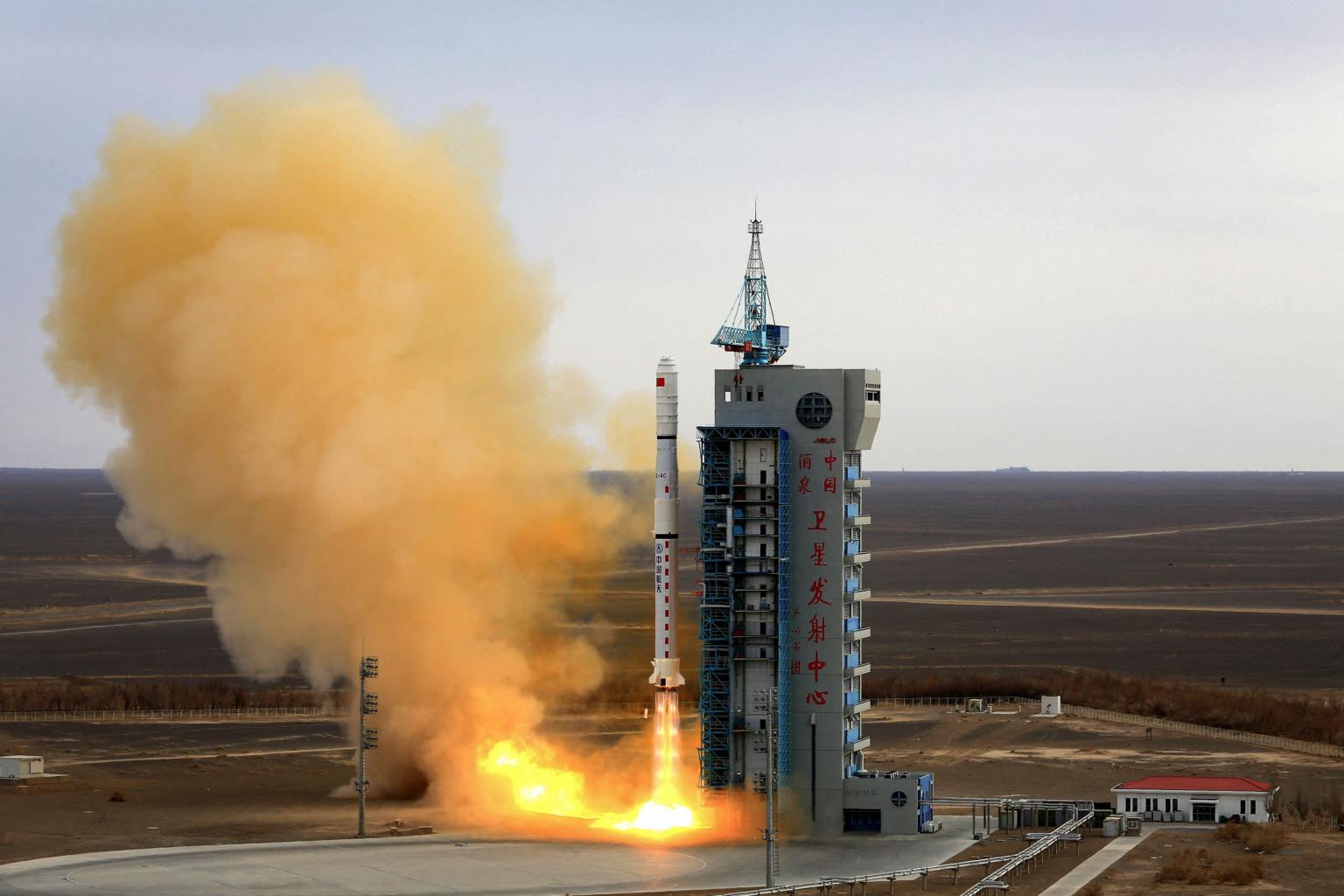China Launches Initiative For Space-Based Supercomputing

Table of Contents
The Ambitious Goals of China's Space-Based Supercomputing Initiative
China's space-based supercomputing initiative aims to create an unprecedented capability for processing massive datasets and performing complex simulations in the unique environment of space. The objectives are multifaceted:
- Unprecedented processing power for complex simulations: Space-based supercomputers will offer processing power far exceeding current terrestrial systems, enabling scientists to tackle previously insurmountable computational challenges.
- Faster data analysis for various scientific disciplines: Fields like climate modeling, astronomy, and materials science will benefit immensely from the speed and capacity of a space-based supercomputing system, accelerating research and discovery. This includes faster analysis of data from Earth observation satellites and space telescopes.
- Potential applications in national security and defense: The enhanced computing power can significantly improve capabilities in areas such as early warning systems, intelligence gathering, and strategic decision-making.
- Technological leap forward for China in the global space race: Successful implementation of this initiative would solidify China's position as a leading innovator in space technology and high-performance computing.
Technological Challenges and Solutions in Space-Based Supercomputing
Building and maintaining a space-based supercomputing system presents formidable technical hurdles:
- Miniaturization of components for space-based deployment: Space is highly constrained, necessitating the development of significantly smaller, more energy-efficient components than those used in terrestrial supercomputers.
- Radiation hardening and other environmental considerations: The harsh conditions of space, including extreme temperatures, radiation, and vacuum, require specialized designs and materials to protect the system.
- Data transmission and communication challenges: Reliable high-bandwidth communication between the space-based supercomputer, satellites, and ground stations is crucial, demanding advanced communication technologies.
- Power requirements and energy efficiency in space: Power generation and management in space are limited, requiring innovative solutions for energy-efficient supercomputing architectures.
- Potential solutions being explored: China is likely investing in advanced materials science, novel cooling techniques, and potentially, quantum computing to address these challenges. The integration of advanced AI for system management and error correction will also be vital.
The Role of Satellite Networks in Space-Based Supercomputing
A constellation of satellites will play a crucial role in supporting China's space-based supercomputing initiative:
- High-bandwidth communication between satellites and ground stations: A robust network of satellites will provide the necessary data transfer capacity for efficient operation.
- Data transfer speeds and latency optimization: Minimizing latency is critical for real-time applications. Advanced communication protocols and network architectures will be employed.
- Robust network architecture for resilience and fault tolerance: The system must be designed to withstand potential failures and maintain continuous operation. Redundancy and self-healing capabilities are essential.
- Integration with other space-based technologies: The space-based supercomputer will likely integrate with other existing and future space-based sensors and observation systems.
Potential Applications and Impact of Space-Based Supercomputing
The applications of a space-based supercomputing system are vast and transformative:
- Advancements in artificial intelligence (AI) and machine learning (ML): The immense processing power will accelerate AI and ML research, leading to breakthroughs in various domains.
- Improved weather forecasting and climate change modeling: More accurate and timely weather predictions and climate simulations are possible through enhanced data processing.
- Revolutionizing scientific research in astronomy, physics, and other fields: Space-based supercomputing can unlock new discoveries by enabling complex simulations and data analysis in various scientific domains.
- Boosting global communication infrastructure: The initiative could contribute to significant advancements in global communication networks.
- Impact on economic development and technological innovation: The technological advancements spurred by this initiative will have far-reaching economic and societal impacts.
Global Implications and the Space Race
China's space-based supercomputing initiative has significant geopolitical implications:
- Competition with other spacefaring nations: The initiative intensifies the competition for technological leadership in space between China, the US, Russia, and the European Union.
- Potential for international collaboration in space-based research: While competition is expected, opportunities for international collaborations in space science and technology could also emerge.
- Ethical considerations and responsible use of space-based technology: International guidelines and agreements are needed to ensure the responsible development and use of advanced space technologies.
- Long-term impact on global technological leadership: The success of this initiative could significantly shape the global technological landscape for decades to come.
Conclusion
China's ambitious initiative for space-based supercomputing represents a bold step forward in high-performance computing and space exploration. Overcoming the significant technological challenges will require substantial innovation and investment. However, the potential benefits—from revolutionary scientific advancements to improved global communication and enhanced national security—are immense. This undertaking will undoubtedly reshape the global technological landscape and accelerate the space race. Follow the advancements in China's ambitious space-based supercomputing initiative to witness the dawn of a new era in computation.

Featured Posts
-
 O Giakoymakis Kai To Mls T Ha Ginei Pragmatikotita I Epistrofi
May 21, 2025
O Giakoymakis Kai To Mls T Ha Ginei Pragmatikotita I Epistrofi
May 21, 2025 -
 Strong Start For Sabalenka At Madrid Open
May 21, 2025
Strong Start For Sabalenka At Madrid Open
May 21, 2025 -
 Is The Trans Australia Run World Record About To Fall
May 21, 2025
Is The Trans Australia Run World Record About To Fall
May 21, 2025 -
 Uk News Tory Politicians Wifes Jail Term Confirmed Over Migrant Comments
May 21, 2025
Uk News Tory Politicians Wifes Jail Term Confirmed Over Migrant Comments
May 21, 2025 -
 19 Indian Table Tennis Players Set For Wtt Star Contender In Chennai
May 21, 2025
19 Indian Table Tennis Players Set For Wtt Star Contender In Chennai
May 21, 2025
